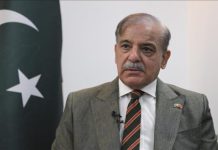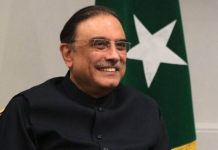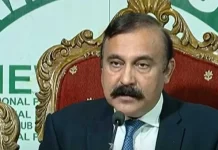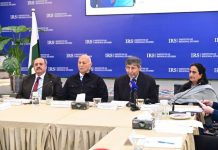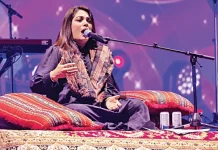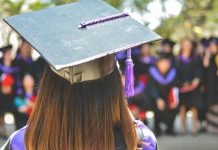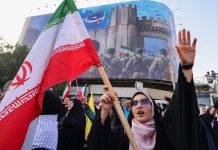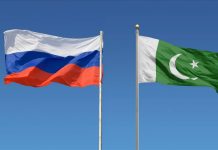
Dr. Syed Mehboob
Political and Economic Analyst
HTTP//: www.thenewslark.com
17th June 2024 was a historical day of Eid ul Adha in Pakistan and the Malaysian Consulate invited me and Mr. Jawed Malik Chief Editor The News Lark, Karachi to celebrate Eid ul Adha with Malaysian brothers and sisters. I was very enthusiastic and excited as it was my first experience to mingle with our Malaysian brothers and to know how they celebrate their Eid. I was warmly welcomed by His Excellency Herman Hardynata Ahmad and other Malaysian Consulate staff. Mr. Jawed Malik was already there and he too received with a warm welcome. It was a unique and enjoyable experience. I felt the heart-touching warmth of their hospitality and love for Pakistan and Pakistanis, reflecting the unbreakable strength of deep-rooted and historic relations between Pakistan and Malaysia. When I discussed this with Mr. Jawed Malik he said he too has the same feelings and admired the down-to-earth, humble nature of His Excellency Consul General of Malaysia.
There are many commonalities between Pakistan and Malaysia in terms of Eid celebrations and in both countries, people celebrate Eid ul Adha on the 10th Zil Hajj of the Islamic calendar.They Offer Eid Prayer at the grand mosque or a large ground. They greet one another sacrifice animals like goats, sheep, camels, bulls, etc., and prepare special meals for their friends and relatives. On Eid day Muslims remember their parents in their prayers for their health and longevity and if they are not alive they pray for the blessings of Almighty Allah in paradise for them. They also hold special prayers for their respective country’s progress, prosperity, and security. On this Eid special prayers were also held for the Palestinian people and restoration of peace there. Like Pakistanis,Malaysians also like to celebrate Eid in their hometowns.
Eid ul Adha is called Hari Raya Korban or Hari Raya Hajj in Malaysia. Pakistanis greet each other with the phrase, “Eid Mubarak” while Malaysians greet with, “Salamat Eid ul Adha”.In the morning, Malaysians flock to the masjid to perform Eid prayers. After the prayers, the menfolk congratulate at the masjids for the sacrificial ceremony, in which four-leggedlivestockdonated by those who can afford it is slaughtered as a symbol of sacrifice to Allah. The meet then is distributed to the poor and the needy. The celebration of this festival is significantly livelier in the north and the east, with the states of Perlis, Kedah, Kelantan, and Terengganu enjoying an extra day of public holiday. Those hailing from Kelantan and Terengganu would return to their hometowns to celebrate Eid–ul–Adha. The spirit of community in these states is especially strong during this time of the year when the local community would all get together to take part in the sacrifice. In Malaysia Eid ul Adha was celebrated on 17th June similar as to in Pakistan. The festival was celebrated both in Pakistan and Malaysia from 17th to 19th June 2024. The year according to the Islamic calendar is similar to 1445 AH.
Eid ul Adha is also another family reunion. These family reunions are also celebrated during other main festivals in the country. With people decked out in their traditional finery, these festivals are an integral featureof Malaysian society. 70% of the Malaysian population is Muslim and Hari Raya Haji is a festival for Muslims, however, Malaysian society is the best example of tolerance and religious harmony, and the grand festive atmosphere also attracts many non-Muslims to experience it.
During the Eid celebrations, the Malaysians dress in their traditional best. The traditional outfits for men are called ‘Baju Melayu’ and those for the ladies are called ‘Baju Kurung’.
It is usually expected that men and women, both alike are to dress conservatively covering their torsos. Especially for women, are expected to wear long-sleeved tops, and skirts/pants are expected to be at least of knee-length (longer the length of clothes, ideal it is). Figure-hugging dresses are a strict no-no.
Even tourists are expected to dress appropriately, especially during the holy festivals, to avoid being called out and feeling uncomfortable. For perfectly seeming to be one of them, it is better advised to follow what the locals are doing.
The News Lark team including Mr. Jawed Ahmed Mali, CEO and Chief Editor, Dr. Syed Mehboob Senior Research Editor, Economic, and Political Analyst are highly thankful to His Excellency Mr. Herman Hardynata Ahmad and other Malaysian Consulate staff for their hospitality. Celebrating Eid with Malaysian brothers and sisters was a unique, historical, and pleasant experience.

